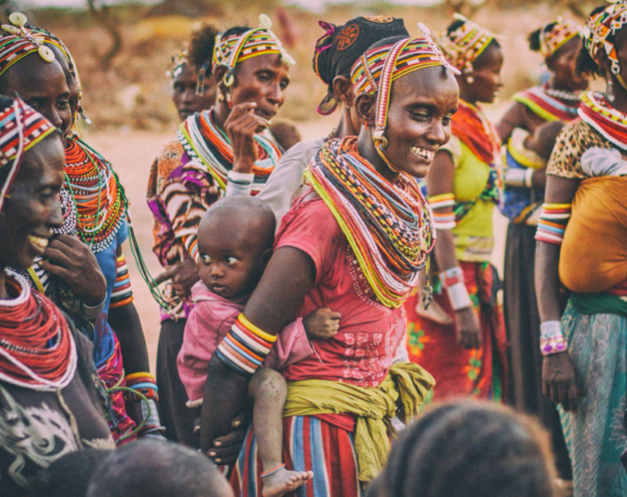From cultural norms to economic factors, there are many challenges that women face in their pursuit of equality. One such factor that has gained popularity in Kenya is the use of mobile apps, including a betting app in kenya, which has had both positive and negative impacts on women’s lives. Despite the challenges, women in Kenya have made significant strides in recent years towards achieving equal rights.
Background
Kenya is a country in East Africa with a population of over 52 million people. The country has a diverse cultural heritage, with more than 40 ethnic groups. Regardless of being a signatory to numerous international and regional human rights treaties that recognize and protect the rights of women, Kenya has a long history of gender inequality, discrimination, and violence against women.
Progress Made
Throughout its history, Kenya has made noteworthy advancements in advocating for and safeguarding women’s rights. Women in Kenya have long faced obstacles such as gender-based violence, discrimination, and limited access to education and healthcare. However, through various initiatives, including legislative measures and grassroots activism, significant strides have been made to address these issues and promote gender equality.
Legal and Policy Reforms
In 2010, the country adopted a new constitution that guarantees equality and non-discrimination on the basis of gender. The constitution also provides for the protection of women’s reproductive rights, including the right to access safe and legal abortion.
Increased Access to Education
The country has achieved gender parity in primary and secondary education, and more girls are enrolling in higher education. The government has also implemented policies to ensure that girls who drop out of school due to early pregnancy can continue their education.
Political Participation
Kenya has made significant progress in promoting women’s political participation. The country has a quota system that reserves a certain number of seats for women in parliament and other decision-making bodies. In the 2017 general elections, the number of women elected to parliament increased by 17%, from 69 to 96.
Challenges
In spite of the progress made, women in Kenya still face numerous challenges that undermine their rights and hinder their progress.
Gender-Based Violence
Gender-based violence remains a significant challenge in Kenya. Women and girls are disproportionately affected, with high levels of domestic violence, sexual violence, and female genital mutilation (FGM). According to a 2014 survey by the Kenya Demographic and Health Survey, 45% of women aged 15-49 have experienced physical violence, and 14% have experienced sexual violence.
Discrimination
Kenyan women continue to experience discrimination in different facets of their lives. They are often paid less than men for the same work, and they have limited access to credit and other financial services. Discriminatory cultural practices such as widow inheritance and female genital mutilation also undermine women’s rights and perpetuate gender inequality.
Limited Access to Healthcare
Many women lack access to family planning services and face barriers in accessing safe and legal abortion services. Maternal mortality rates are also high, with an estimated 362 maternal deaths per 100,000 live births.
Poverty
Women are more likely than men to live in poverty, and they have limited access to economic opportunities and resources. Poverty also limits women’s access to education, healthcare, and other essential services.
Way Forward
To address the challenges faced by women in Kenya, the government, civil society organizations, and other stakeholders need to work together to promote and protect women’s rights.
Strengthening Legal and Policy Frameworks
Strengthening legal and policy frameworks that promote and protect women’s rights must take action. Furthermore, part of this involves enforcing existing laws and policies and adopting new ones where necessary. The country should also work with civil society organizations to raise awareness and promote education on women’s rights.
Addressing Gender-Based Violence
Concrete steps need to be taken by the governor to address gender-based violence. This includes strengthening the legal framework to hold perpetrators accountable, providing support services to survivors, and promoting education and awareness-raising initiatives to change cultural attitudes that condone violence against women.
Promoting Gender Equality
This comprises adopting policies that ensure equal pay for equal work, increasing access to credit and financial services for women, and promoting women’s entrepreneurship. These measures have the potential to transform the economic landscape of the country, as they help create more equitable opportunities for women, and enable them to build and grow.
Improving Access to Healthcare
Kenya needs to improve access to healthcare, particularly reproductive healthcare. Some key elements of these efforts are increasing access to family planning services, promoting safe and legal abortion services, and reducing maternal mortality rates through improved maternal healthcare services.
Addressing Poverty
The country needs to address poverty and support economic empowerment for women. This will promote women’s access to economic opportunities and resources by providing training, education, and supporting women’s entrepreneurship.
Women’s rights in Kenya have come a long way, but there is still much work to be done. The government, civil society organizations, and other stakeholders need to work together to address the challenges faced by women and promote and protect their rights.














